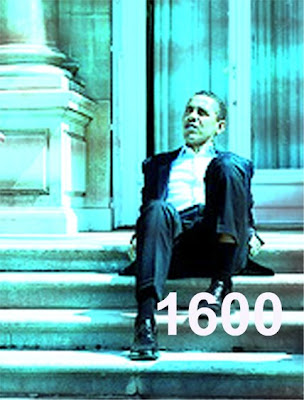
As someone who watched with a sick dread the 2000 election results and the sorry spectacles of the states-rights, anti-litigious Republican party taking a lawsuit from state court to the Supreme Court to stop the Florida recount, I feel a real admiration for – and am definitely shamed by – the protesters after the very likely
stolen election in Iran. A sufficient number of protesters in the streets of Tallahassee demanding the full recount take place might not have tipped the balance in 2000 at any point. But I feel bad for not at least trying. And I’ve since tried to make up for it, so there’s that.
But here are people with a legitimate grievance. Their government has defrauded them, stolen power and made up a story about it, and is physically
cracking down on anyone who says so. And yet the Iranian citizens, openly flouting all restrictions on freedom of expression, fill the streets to demand justice. They endure
horrible beatings and some may be dead – yet the demand for justice, equal representation and the rule of law still impel people forward regardless of the risk.
Or maybe in response to it. It’s often when freedom of expression is threatened by force that freedom of expression shouts the loudest. One of the greatest advances of
Humanism – the idea that all humans are inherently equal and start with the same basic rights – is the idea that revolution by persuasion can be at least as effective as revolution by violence. Peaceful revolution is inherently humanist because it seeks change without violating its own principles. It has won revolutions in the Soviet Union and almost all of its client states and former members, India and South Africa – which is an especially clear example because it wasn’t the ANC’s violent tactics but rather the organized peaceful protests that so captured the world’s imagination. Violent acts are easily condemnable and rob any group of its legitimate focus in its grievances.
ETA, the Basque resistance group that operates around the French-Spanish coastal border, increasingly loses support for its legitimate claims about guarding the autonomy of one of Europe’s most unique cultures by its
acts of violence. When the government oppressing you has the choice of calling you a freedom fighter or a criminal, which do you think it’s going to choose? So why give it the opportunity to justify such a claim?
Humanism – including treating people fairly and all that sissy-ass hippie soft-on-terrorism, soft-on-crime, assuring-people’s-basic-rights stuff that Dick Cheney so insists is making us
less safe – happens to be the basis for our Constitution. And although the Constitution as originally written was based on the social contract – that government should serve the governed – it took enough states insisting on a Bill of Rights that carved the government’s limits in stone to get it ratified. All those hippie ideas like search warrants and freedom of the press that led to the abominations of Miranda rights and FOIA began with the impetus of the next tier down from the ruling class protecting its own interests. That they become universal rights is the logical culmination of humanism: the glaring contradictions become increasingly evident in a society that espouses equality but doesn’t practice it or even fully comprehend why it should.
Which is why President Obama’s election is such a triumph for humanism and equal treatment. With his emphasis on ending the extrajudicial treatment of the Guantanamo and black site inmates, on government transparency, opposition to Bush-era secret treaties, civil unions, a better-regulated economy and other issues, his general direction is towards a government for the benefit of the governed and an economy for the benefit of the consumer. That conservatives tend to call this class warfare neglects to mention that the war is being conducted by people who have been robbed of something that was theirs: the faith that a well-regulated economy was not in fact dominated by
cheats,
number-shufflers and MBAs who favored getting
around the law over operating within it.
Additionally the overt clumsiness of the Iranian government’s reaction testifies to its unpreparedness for this vast electoral uprising – not to mention its intellectual laziness and consequent need to be given the heave-ho. The majority of the people have clearly understood that the moral authority that Ayatollah Khomeini carried into the Iranian revolution in 1979 never went so far as to authorize Sharia to be extended as far as it did. Iranian history since then has been a tug-of-war between religious fundamentalist potentates and a populace that still remembers any sliver of liberal freedom it read about or even personally enjoyed.
And now it has come to this: An Iranian populace that would rather
shout from the rooftops than quietly admit it has been robbed. The greatness of the liberal humanist idea of government for the governed planted this seed. Last week President Obama reached out to the Muslim nations in a speech from Cairo. He gave Iranian voters a Great Satan with a smile on his face and an extended hand – and removed the saber-rattling, us-or-them
exceptionalist adversarialist brinkmanship that has bullied the world into a passive-aggressive resistance.
This removed a major tool of the Ahmadenijad electoral impetus – that the United States was threatening war and needed to be stood up to by a unanimous opposition.
Sound familiar? Yeah it’s amazing how much an imminent threat – either real or manufactured – can motivate a populace into thinking out of fear and not reason. Especially if they’re not taught reason in the first place, but let’s not worry about that for now.
President Obama’s
speech in Cairo made two innate promises to the Iranian people: that we would engage honestly with the Iranian people and that we would try to advance equality and the rule of law everywhere. Given that, the Obama government should press for complete transparency in Iran’s election process. Iran does
not currently allow independent election monitors, which is evident of a systematic mistrust of the electorate. President Obama, as a Constitutional scholar, should know that it’s never in the people’s best interest to blindly trust their government. The people are better off the more the government’s actions are available to public examination.
This has been the main course of the Obama candidacy and the Obama presidency – that America succeeds best when it represents its own values. It should always be reminded of – and never dissuaded from – doing this. As such, we as a nation should demand from Iran the openness and accountability that its civilians are being prevented from demanding of their civil service. We should push for it to acknowledge the legitimate results of the contest even its oppressive election councils approved of. Ayatollah Khatamei should concede that he left the door open to reform and should now admit it needs to take place. And if we’re going to negotiate with a government it might as well be the honestly elected one.










